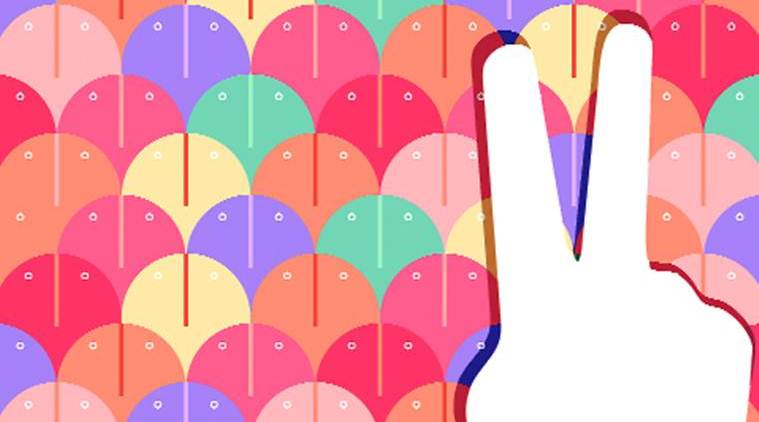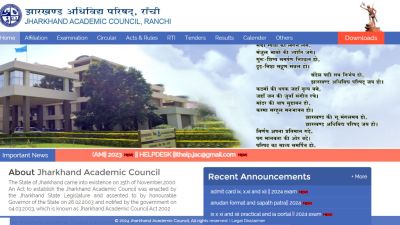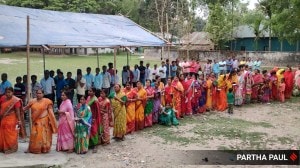- India
- International
The business of politics, the necessity of values
Elections are short term contests, but the political project of democracy is a long game.
 Elections are a key indicator of the health of a democracy and are a complicated mechanism involving ratios of population size to the number of representatives, calendars, machines and processes. (Illustration by C R Sasikumar)
Elections are a key indicator of the health of a democracy and are a complicated mechanism involving ratios of population size to the number of representatives, calendars, machines and processes. (Illustration by C R Sasikumar)
Democracy is not just a set of institutions but also a set of values. The institutions are, minimally speaking, free and fair elections, an elected Parliament containing an executive and an Opposition to hold it accountable, an independent judiciary, a nonpartisan bureaucracy, a free media, and security of existence for all citizens. Democratic values include the ability to accommodate a diverse range of viewpoints that requires civility of conduct, a commitment to egalitarian ideals, the idea of universal citizenship — encompassing rights but also duties, allowing all sections of the populace to be heard despite the louder voice of the majority, and, a general commitment to the common good over individual desires. The relationship between democratic institutions and democratic values is symbiotic: The former are there to safeguard the latter and to exemplify them in their own conduct. In turn, the foremost democratic value is respect for institutions. Thus, both institutions and values are essential for any country to be democratic.
Elections are a key indicator of the health of a democracy and are a complicated mechanism involving ratios of population size to the number of representatives, calendars, machines and processes. They are designed to safeguard against majoritarianism — this is why a referendum is not a democratic election through which popular representation can be established. Also, by making them free and fair, it allows ordinary people to experience and perform citizenship by participating in elections, when they are treated equally and with respect by a system that is transparent and well-ordered. For elections to be orderly, it is imperative that other institutions perform their respective roles, to create a set of checks and balances to ensure that elections are, in fact, free and fair. Thus, the election commission had to be a body that functions with complete integrity and transparency, fulfilling its duty as an impartial referee towards all political parties; the judiciary maintains a check on violation of norms and human rights; the media covers the entire range of political opinion and campaigns; and, crucially, the citizen exercises her franchise with complete faith in the system.
As a result, Indians voted with a certain faith in the democratic system, as my research (see Why India Votes, 2014) demonstrated. It is for this reason that India developed the ‘Model Code of Conduct’ in the 1980s, after the experience of a few decades of electoral democracy — to introduce some self-regulation, to maintain a modicum of decorum during a campaign. All Indian political parties signed up to it, in recognition of the fact that it was critical to maintain democratic values even and especially during an election campaign: Because those in politics knew that elections are by nature combative and carnivalesque, because in the heat of the moment anything could be said, desperate measures could be taken and power could be misused simply to secure a win. A democratic win is achieved only while maintaining democratic values, and within certain shared constraints. The means and ends of winning a democratic election had to be aligned.
But something quite profound has shifted in this relationship between democratic values and elections in recent years because of a combination of factors, including mass technology and institutional failures. The credentials of a “democratically elected government” are now simply one that has won the largest number of seats in Parliament without any accounting of how those seats were won, which institutions were trampled upon in the march to the finishing line, the quality of conduct and veracity of utterances during the journey. Elections have now become a free-for-all affair in which utterances earlier unthinkable even in private, are broadcast to thousands.
Discourse has been cheapened such that an incumbent prime minister can be called a thief — and the riposte is to lower the discourse further, rather than aiming for a higher standard (unlike what Michelle Obama said, here the policy is “when they go low, we go lower”).
The role that money now plays in elections and democratic politics is, perhaps, key to this: Money cannot buy votes, but it can certainly buy advertising space, the partiality of journalists, the time and labour of social media coordinators, and, even the loyalty of rival politicians. Money has always played a murky role in violating democratic norms in Indian politics, but the new mechanism of electoral bonds has been a game changer. It has now not only made financial contributions legitimately opaque, but allowed unprecedented sums of money to go to one single party, to do as it wishes in order to win an election, without any checks and balances.

Elections are short term contests, but the political project of democracy is a long game; building a democratic polity requires the meticulous building of robust institutions while also cultivating the values associated with it. These values are not esoteric or artificial and many already exist in society — basic decency in speech, learning to live with the Opposition, cooperating with everyone in common purpose, playing by the rules even when they are personally inconvenient, not lying all the time and so on — because they are essential to live with others. But they are not the easiest values to adopt because they take discipline and self-cultivation, and the work of creating a democracy is to identify and cultivate them and make them essential to the business of politics and social life. No country or citizen is born democratic, they are made so. These values and institutions also need protection because they are vulnerable — they take years to grow but can be uprooted in days.
Such democratic values can seem irrelevant once democracy is reduced to winning an election at any cost. No longer is it then necessary to strive for truth and integrity, or to urge people to be better versions of themselves. A politics based on hate and chauvinism, disregard for norms and conventions, the capture of institutions and individuals with naked cash takes relatively less effort (think of how much easier it is to let your child pluck flowers in a park, than teaching them why they must not). And such a politics, unencumbered by restraints, is much better suited to winning elections because it stirs emotions easily and mobilises support, in the short term. Such a politics may win elections, but democracy is lost.
The writer is director, LSE South Asia Centre, and author of Why India Votes? (2014)
EXPRESS OPINION
More Explained
Apr 19: Latest News
- 01
- 02
- 03
- 04
- 05









































